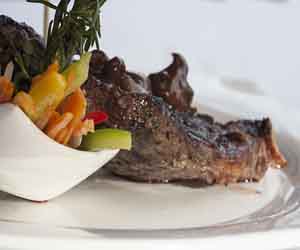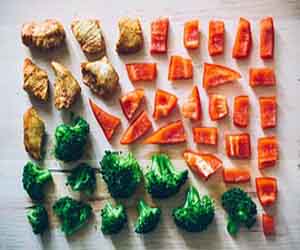


Elevating Your Life For A Brighter Tomorrow

In our fast-paced world, the quest for an enhanced lifestyle is a common aspiration. We all seek to improve our well-being, find more fulfillment, and enjoy a higher quality of life. Lifestyle enhancement is about making conscious choices that transform our daily routines into opportunities for personal growth, greater happiness, and a more vibrant future.
Defining Lifestyle Enhancement
Lifestyle enhancement is a holistic approach to self-improvement that encompasses various aspects of life, including physical health, mental well-being, personal relationships, and personal growth. It's not just about momentary pleasures or material possessions; it's about creating a sustainable and fulfilling way of life that nurtures and inspires us.
Physical Health And Well-being
One of the cornerstones of lifestyle enhancement is prioritizing physical health. Regular exercise, a balanced diet, and adequate sleep are fundamental. Engaging in physical activities you enjoy, whether it's a daily walk, yoga, or team sports, can be a source of not only fitness but also joy.
Diet plays a crucial role in overall well-being. Opting for whole, unprocessed foods and staying hydrated can make a significant difference in how you feel on a daily basis. Balance is the key; it's essential to allow for occasional indulgences while maintaining a predominantly nutritious diet.
Mental And Emotional Wellness
An enhanced lifestyle also places a strong emphasis on mental and emotional well-being. Mindfulness practices, such as meditation and deep breathing exercises, help manage stress and increase mental clarity. These practices provide a space for self-reflection and personal growth.
Cultivating a positive mindset is another aspect of mental well-being. Choosing to focus on gratitude and positivity can dramatically impact your overall outlook on life. Eliminating negative self-talk and self-limiting beliefs is a crucial step towards mental and emotional enhancement.
Personal Growth And Learning
A commitment to personal growth is at the heart of lifestyle enhancement. It involves setting goals, challenging yourself, and continually seeking opportunities for learning and development. Whether it's through reading, taking up a new hobby, or pursuing further education, personal growth enriches your life with purpose and meaning.
Balanced Relationships
Fostering strong, healthy relationships is another key element of lifestyle enhancement. Surrounding yourself with supportive and loving individuals can bring joy and fulfillment. Effective communication and the ability to resolve conflicts are skills that enhance relationships.
Time Management And Work-Life Balance
Managing your time efficiently and achieving a healthy work-life balance is crucial for an enhanced lifestyle. Setting boundaries and prioritizing activities that bring you joy and relaxation is essential to prevent burnout and exhaustion.
Gratitude And Mindfulness
Practicing gratitude and mindfulness are essential components of lifestyle enhancement. Expressing gratitude for the small and big blessings in your life can boost happiness and contentment. Mindfulness, or being fully present in the moment, helps reduce stress and enhances the overall quality of life.
Lifestyle enhancement is a conscious and ongoing journey that seeks to elevate the quality of your life in all its dimensions. By focusing on physical health, mental and emotional well-being, personal growth, relationships, and work-life balance, you can create a life that is not only more fulfilling but also sustainable. It's about making choices that enhance your daily experiences, enrich your well-being, and lead to a brighter and more vibrant future. Embrace the opportunity to enhance your lifestyle, and you'll discover that the journey itself is a rewarding and transformative experience.






A Taste Of Wholesome Goodness
 Transparency And Trust: Farm-fresh foods often come with a story. You can meet the farmers and producers, learn about their practices, and even visit the farms. This transparency fosters a sense of trust and a deeper connection to the food you eat.
Transparency And Trust: Farm-fresh foods often come with a story. You can meet the farmers and producers, learn about their practices, and even visit the farms. This transparency fosters a sense of trust and a deeper connection to the food you eat.
Support For Local Communities: By choosing farm-fresh, you are not just savoring great taste; you're also supporting local communities and economies. Small-scale farmers and producers often rely on local sales, and your patronage helps ensure their livelihood.
Environmental Impact: Farm-fresh foods typically have a smaller carbon footprint. Shorter transportation distances mean fewer emissions, contributing to a more sustainable food system.
Nourishing The Planet And Ourselves
 Local And Seasonal Sourcing: Embracing local and seasonal food is another pillar of food sustainability. The transportation of food over long distances generates a substantial carbon footprint. Choosing local and seasonal ingredients reduces greenhouse gas emissions and supports local economies. It also encourages consumers to connect with the natural rhythms of their environment and enjoy a wider variety of fresh, in-season produce.
Local And Seasonal Sourcing: Embracing local and seasonal food is another pillar of food sustainability. The transportation of food over long distances generates a substantial carbon footprint. Choosing local and seasonal ingredients reduces greenhouse gas emissions and supports local economies. It also encourages consumers to connect with the natural rhythms of their environment and enjoy a wider variety of fresh, in-season produce.
Reducing Food Waste: Food sustainability also involves reducing food waste, a significant problem worldwide. By minimizing waste at all stages of the food supply chain, from production to distribution and consumption, we can alleviate the strain on resources and landfills. This requires better planning, innovative packaging, and a shift in consumer behavior.
Healthy Eating: Healthy eating is an integral component of food sustainability. A diet based on nutrient-dense, minimally processed foods contributes to overall well-being and longevity.
Embracing A Gluten-Free Lifestyle
 Treatment With A Gluten-Free Diet
Treatment With A Gluten-Free Diet
The cornerstone of celiac disease treatment is the complete elimination of gluten from the diet. A gluten-free diet helps to prevent the autoimmune response and allows the small intestine to heal. When followed diligently, it can lead to symptom resolution and improved overall health.
Challenges Of A Gluten-Free Lifestyle
While a gluten-free diet is the only effective treatment for celiac disease, it presents numerous challenges:
Label Reading: Learning to decipher food labels and identify sources of hidden gluten can be overwhelming.
Cross-Contamination: Avoiding cross-contamination is crucial, as even trace amounts of gluten can trigger symptoms.
Social Situations: Navigating social gatherings and dining out can be challenging, as it often requires clear communication about dietary restrictions.
The Foundation Of A Healthy Body
 The Crucial Role Of Minerals
The Crucial Role Of Minerals
Minerals are inorganic substances that our bodies require in relatively small amounts to function correctly. They serve as critical components in various physiological processes and contribute to overall health. Minerals are classified into two categories: macrominerals and trace minerals. Both types are essential, but macrominerals are required in larger quantities.
Macrominerals: The Body's Building Blocks
Calcium: Renowned for its role in bone health, calcium also aids in muscle function, nerve transmission, and blood clotting. Dairy products, leafy greens, and fortified foods are good sources.
Magnesium: This mineral is involved in hundreds of biochemical reactions, including energy production and muscle and nerve function. Magnesium can be found in nuts, seeds, and whole grains.
Sodium: Although excessive sodium can lead to health issues, it is essential for maintaining proper fluid balance, nerve function, and muscle contractions.
Elevate Your Culinary Game With Clever Shortcuts
 4. Efficiency: Cooking hacks streamline the cooking process, making it more efficient. They allow you to multitask, so you're not chained to the stove, and they minimize the number of pots and pans you need to wash.
4. Efficiency: Cooking hacks streamline the cooking process, making it more efficient. They allow you to multitask, so you're not chained to the stove, and they minimize the number of pots and pans you need to wash.
5. Creativity: Hacks encourage experimentation and creativity in the kitchen. They open up new possibilities and inspire you to try new techniques and flavors.
Must-Know Cooking Hacks
Here are a few essential cooking hacks that can make your time in the kitchen more efficient and enjoyable:
1. Knife Skills: Mastering basic knife skills can save time and improve your safety in the kitchen. Learn to chop, dice, and slice like a pro to speed up meal prep.
2. Use Citrus Zest: The zest of citrus fruits like lemons and oranges is a flavor powerhouse. Grate the outer skin for a burst of aroma and taste in your dishes.
 Fresh Ingredients As Key Players
Fresh Ingredients As Key Players
Flavorful plant-based cuisine places a strong emphasis on the use of fresh, seasonal ingredients. Fruits and vegetables in their prime, legumes, whole grains, nuts, and seeds form the foundation of these dishes. The freshness and quality of these ingredients not only enhance the taste but also provide a wealth of nutrients, vitamins, and minerals.
Spices And Herbs For Complexity
Spices and herbs are the secret weapons in crafting flavorful plant-based dishes. Ingredients like garlic, ginger, turmeric, cumin, coriander, and a variety of aromatic herbs are used to create layers of complexity in flavors. These natural seasonings not only add depth but also contribute to the health benefits of the dishes.
Umami-Rich Ingredients
Umami, the fifth basic taste, often associated with savory and meaty flavors, is a hallmark of many plant-based recipes. Ingredients like mushrooms, soy sauce, miso, and nutritional yeast are used to add richness and depth to dishes, giving them a satisfying and meaty taste without actual meat.
Texture And Presentation
Texture plays a significant role in the appeal of flavorful plant-based dishes. Ingredients like tofu, tempeh, seitan, and various plant-based meat substitutes offer the chewiness and mouthfeel traditionally associated with animal products. Expertly prepared, these ingredients can mimic the texture of meat in a way that adds to the overall dining experience.